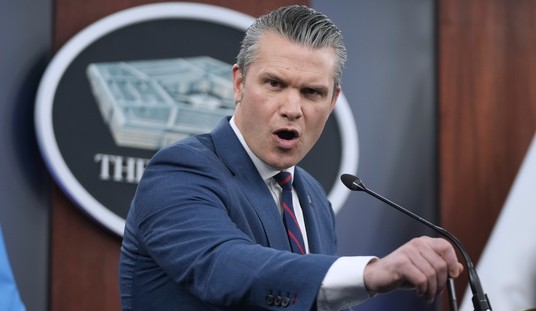Didn’t we just see this movie? “It is the institution of policing itself that must be dismantled,” one Seattle city council member declared as a majority announced its support for cutting the police budget by 50%. That would create a reduction of 1,000 personnel, with the council mulling ways in which the funding could be redirected to “community organizations” rather than policing.
Would that be more “community organizations” like the CHAZ Patrol?
The majority of Seattle City Council is now backing proposals to defund Seattle’s police department by 50%, despite concerns from the mayor’s office and Seattle’s police chief that council members are moving too quickly and without enough widespread community engagement.
A coalition called Decriminalize Seattle presented a plan to the budget committee to redirect millions from the city budget to community organizations.
“The status quo is no longer acceptable,” Council President Lorena Gonzalez said Thursday, adding that while she previously believed in police reform, she now believes in rebuilding. “We have to take away the things that no longer and should have never belonged to law enforcement in the first place,” she said.
Well, a cut of 50% would certainly dismantle much of Seattle’s law enforcement, certainly. What would replace it? More seminars on dialing down the “whiteness”? Those are particularly useful when people are setting your business on fire or shooting teenagers in cars passing by, which were just a couple of the many incidents in the three-week life of the Capital Hill Autonomous Zone.
The truth is that the city council — like its Minneapolis counterpart — has no real plan for that transformation. The only solid proposal at the moment is to take the 911 center out of the police department’s jurisdiction and put it under “civilian” authority. That’s almost literally just a change of letterhead, however, and it has nothing to do with policing practices:
The council also heard details about how the city’s 911 system is used, with some members saying they would like to remove Seattle’s 911 dispatchers from Police Department control, as recommended by Decriminalize Seattle.
The types of 911 calls that Seattle police respond to most are reported disturbances, suspicious circumstances, parking issues, public assistance needs and car crashes, accounting for 41% of all calls. Those are mostly noncriminal issues.
The Police Department’s call center already is staffed almost exclusively by civilian dispatchers, rather than sworn officers, and has an annual budget of about $36 million (its dispatchers transfer some calls to the Fire Department).
The SPD probably wouldn’t mind losing the responsibility for running a call center anyway, but that doesn’t mean that this is a savings. The call center will have to exist in some form and the city will still have to pay for it whether the PD runs it or not. Most of the calls will still end up going to the police too. Parking issues and public assistance calls could easily be redirected to other agencies in the current setup simply by policy change, but the rest of those calls will require law enforcement.
The cuts to the SPD will run over $200 million a year, too. After the $36 million call center cost gets transferred to some other agency, that still leaves over $160 million in cuts, which means massive cuts to actual sworn-officer positions. That means less community engagement and more emergency-response policing, which is the worst of all possible worlds. Practically every situation into which police get called will be those where armed force is a more likely outcome, and it will be by police officers with even less connection to the people involved.
Seattle police chief Carmen Best warns that this choice is “rash and irrational,” and that the city council had better engage with a wider group of voters before making it:
“I respect Councilmember Mosqueda. I think she is very passionate about what she’s doing, but she also needs to think about the fact that public safety and the budget are intertwined,” Best said, “And we need to make sure we’re doing what’s in the best interests of everybody. It’s really interesting — if anybody recognizes issues of system racism and institutional racism, it’s me.”
The city has cautioned that removing 50% of the SPD’s funding would mean losing 1,000 personnel.
“I think it’s rash and irrational to make that decision without having a thoughtful conversation with community members,” Best said, “And I’m hoping that the City Council will rethink the plan to do that — without having a plan for how we’re going to re-envision policing and how it will work.”
The city council in Seattle would have to think before it could rethink. Even on first thought, this is a dangerous and empty-headed move, especially when the same people pushing this can’t even produce a lightly detailed plan to deal with the consequences of cutting the police in half.







Join the conversation as a VIP Member